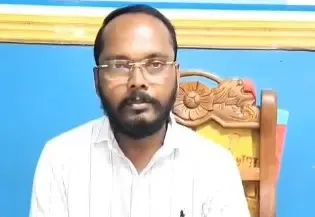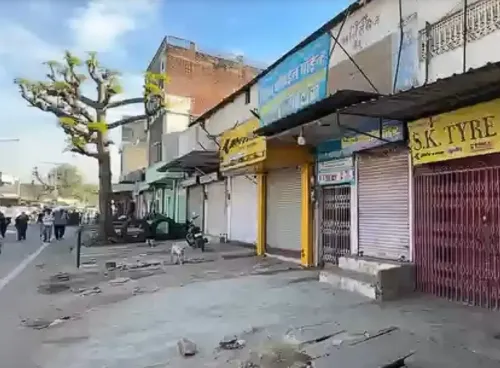Why are Cheque Bounce Cases Rising Amid Legal Backlogs?

Synopsis
Key Takeaways
- 44.7 lakh cheque bounce cases are pending in India.
- Over 25.9 lakh cases unresolved for more than two years.
- States with the highest cases include Maharashtra, Rajasthan, and Gujarat.
- Systemic inefficiencies contribute to the backlog.
- Small borrowers face significant challenges due to prolonged legal processes.
New Delhi, July 25 (NationPress) A shocking 44.7 lakh cheque bounce cases under the Negotiable Instruments Act (NIA), 1881 are currently unresolved in courts throughout India, with more than 25.9 lakh of these cases pending for over two years, as per data presented in the Lok Sabha.
The statistics, obtained from the National Judicial Data Grid (NJDG), highlight a continuing crisis in the legal enforcement of financial instruments.
In response to a query from MP Damodar Agrawal, Law Minister Arjun Ram Meghwal clarified that the NIA is uniformly applicable across diverse socio-economic groups, dismissing claims that financial institutions exploit vulnerable individuals through cheque bounce regulations.
States like Maharashtra (6.38 lakh cases pending), Rajasthan (6.29 lakh), and Gujarat (5.15 lakh) top the list, while Delhi contributes over 4.6 lakh cases.
Significantly, Madhya Pradesh—the state of the MP who raised the inquiry—was excluded from the report without explanation, alongside data from Jammu and Kashmir, Ladakh, Mizoram, and Manipur.
In 2024 alone, over 1.22 million cases were recorded under the Act, marking a consistent rise from 967,595 cases in 2021, which underscores both an increase in financial transactions and the growing challenges of enforcement.
Disposal rates vary significantly, with states such as Gujarat achieving close parity in case registration and disposal, in contrast to Uttar Pradesh and Bihar which face significant backlogs.
He emphasized that Section 143 of the Act requires speedy summary trials, ideally within six months—a target that remains elusive amidst ongoing delays.
Legal professionals attribute the backlog to systemic inefficiencies, a lack of judicial personnel, and frequent procedural adjournments.
Meanwhile, advocates for citizen rights contend that lengthy trials disproportionately impact small borrowers and rural entrepreneurs, for whom legal fees and time can surpass the initial transaction amount.
The government has not suggested any legislative changes but continues to rely on judicial best practices to hasten resolutions.
With over half of the pending cases unresolved for more than two years, the integrity of India’s financial and legal accountability framework is facing a significant challenge.










